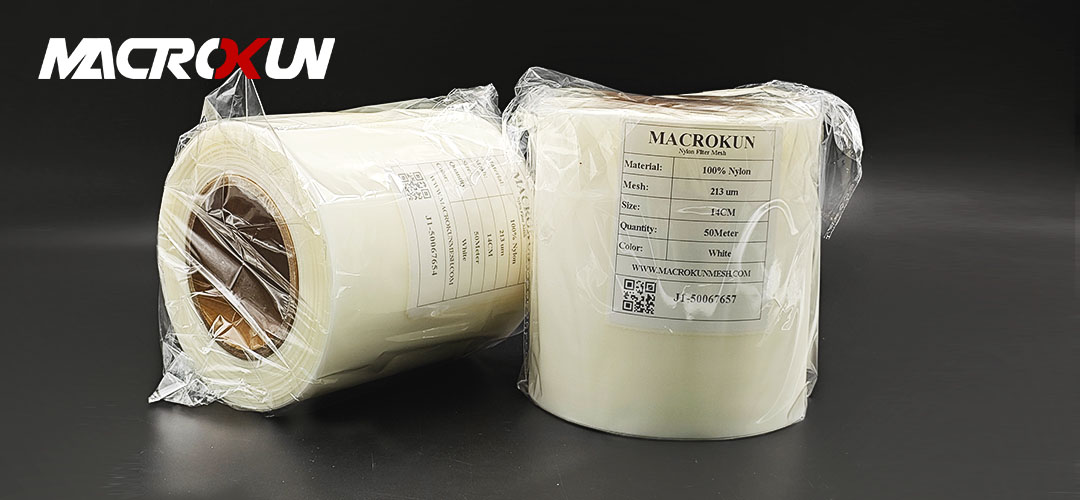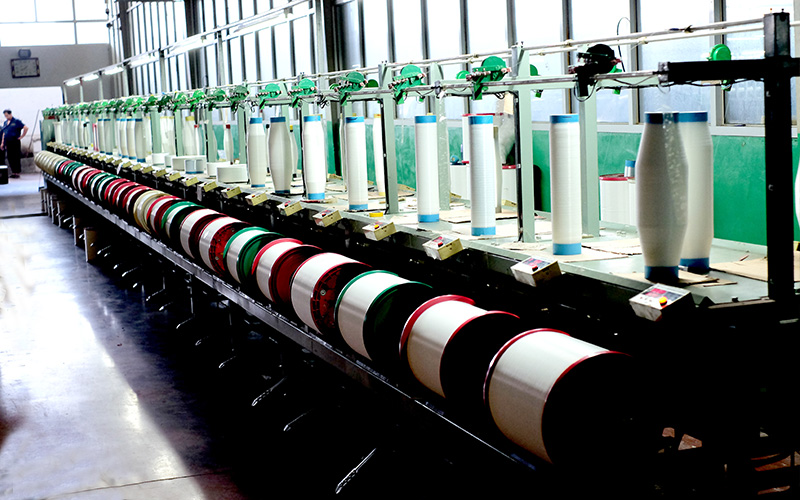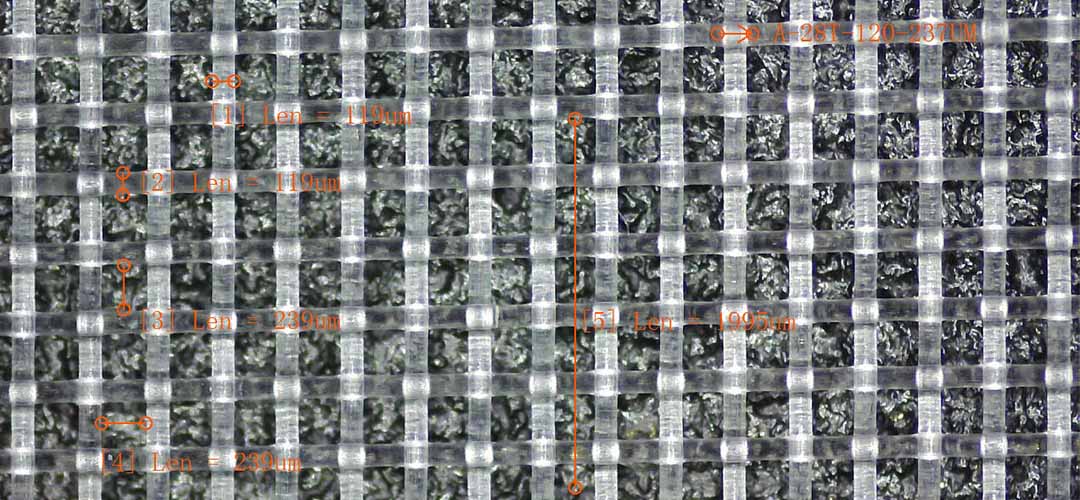Heavy-duty nylon netting is a versatile and durable material that is commonly used in a variety of industrial applications. Its strength and versatility make it an ideal choice for a wide range of uses, from protecting crops to securing construction sites. In this article, we will explore the benefits of using heavy-duty nylon netting in industrial settings.
One of the key advantages of heavy-duty nylon netting is its strength. Made from high-quality nylon fibers, this type of netting is able to withstand heavy loads and resist tearing and stretching. This makes it an excellent choice for applications where durability is essential, such as in construction sites or manufacturing facilities.
In addition to its strength, heavy-duty nylon netting is also highly versatile. It can be used in a variety of ways, from creating barriers to protecting equipment and materials. Its flexibility and adaptability make it a valuable asset in industrial settings, where the needs and requirements can change rapidly.

Another benefit of heavy-duty nylon netting is its resistance to environmental factors. Unlike other materials, such as plastic or metal, nylon netting is able to withstand exposure to harsh weather conditions, UV rays, and chemicals. This makes it a reliable choice for outdoor applications, where durability and longevity are essential.
Furthermore, heavy-duty nylon netting is lightweight and easy to install. This makes it a cost-effective solution for industrial applications, as it can be quickly and easily deployed without the need for specialized equipment or tools. Its ease of use also makes it a popular choice for temporary installations, such as event fencing or crowd control barriers.
In addition to its strength and versatility, heavy-duty nylon netting is also highly customizable. It can be tailored to meet specific requirements, such as size, shape, and color. This flexibility allows for a wide range of applications, from protecting crops to creating safety barriers in warehouses.
Overall, heavy-duty nylon netting is a reliable and cost-effective solution for a variety of industrial applications. Its strength, versatility, and resistance to environmental factors make it an ideal choice for protecting equipment, securing sites, and creating barriers. Whether used in construction, agriculture, or manufacturing, heavy-duty nylon netting is a valuable asset that can help improve safety, efficiency, and productivity in industrial settings.
Heavy-duty nylon netting is a versatile and durable material that has a wide range of applications, particularly in the construction industry. Its strength and flexibility make it an ideal choice for improving safety on construction sites. In this article, we will explore the various ways in which heavy-duty nylon netting can be used to enhance safety in construction sites.
One of the primary uses of heavy-duty nylon netting in construction sites is as a safety barrier. Construction sites are inherently dangerous places, with workers often working at heights or in close proximity to heavy machinery. By installing heavy-duty nylon netting around the perimeter of a construction site, workers can be protected from falling objects and debris. This not only helps to prevent accidents and injuries but also ensures compliance with safety regulations.
In addition to serving as a safety barrier, heavy-duty nylon netting can also be used to create temporary enclosures on construction sites. This can be particularly useful when working on projects that require containment of dust, debris, or hazardous materials. By installing nylon netting around the work area, construction crews can prevent contaminants from spreading to other parts of the site, as well as protect workers and passersby from exposure to harmful substances.
Another way in which heavy-duty nylon netting can improve safety on construction sites is by providing fall protection for workers. When working at heights, such as on scaffolding or elevated platforms, it is essential to have proper fall protection measures in place. Nylon netting can be installed beneath these work areas to catch workers in the event of a fall, reducing the risk of serious injury or death.
Furthermore, heavy-duty nylon netting can also be used to secure tools and equipment on construction sites. Loose tools and equipment can pose a significant hazard to workers, as well as cause damage to property and materials. By using nylon netting to create secure storage areas for tools and equipment, construction crews can prevent accidents and ensure that everything is kept in its proper place.
In addition to its safety benefits, heavy-duty nylon netting is also a cost-effective solution for construction sites. Compared to other materials, such as steel or concrete barriers, nylon netting is lightweight, easy to install, and reusable. This makes it a practical choice for temporary safety measures on construction sites, as well as a long-term solution for ongoing safety needs.
Overall, heavy-duty nylon netting is a versatile and reliable material that can greatly improve safety on construction sites. Whether used as a safety barrier, temporary enclosure, fall protection system, or tool storage solution, nylon netting offers a range of benefits that can help construction crews work more safely and efficiently. By investing in heavy-duty nylon netting for their construction projects, companies can ensure the well-being of their workers and the success of their projects.
Heavy-duty nylon netting is a versatile and durable material that has a wide range of applications in various industries, including agriculture. Its strength and versatility make it an ideal choice for protecting crops, controlling pests, and providing support for plants. However, the use of heavy-duty nylon netting in agriculture also has environmental implications that need to be considered.
One of the primary benefits of heavy-duty nylon netting in agriculture is its strength and durability. Nylon is a synthetic material that is known for its high tensile strength, making it ideal for supporting heavy crops such as tomatoes, cucumbers, and melons. The durability of nylon netting also means that it can withstand harsh weather conditions, including strong winds, heavy rain, and intense sunlight, without deteriorating or breaking.
In addition to its strength and durability, heavy-duty nylon netting is also highly versatile. It can be used in a variety of ways in agriculture, from providing support for climbing plants to creating protective barriers against pests and predators. Nylon netting can also be easily customized to fit the specific needs of different crops and growing conditions, making it a flexible and adaptable solution for farmers.
Despite its many benefits, the use of heavy-duty nylon netting in agriculture can have negative environmental impacts. One of the main concerns is the disposal of nylon netting at the end of its life cycle. Nylon is a synthetic material that is not biodegradable, meaning that it can persist in the environment for hundreds of years if not properly disposed of. Improper disposal of nylon netting can lead to pollution of soil and water sources, as well as harm to wildlife that may become entangled in the netting.
Another environmental impact of heavy-duty nylon netting in agriculture is its production process. The production of nylon involves the use of fossil fuels and other non-renewable resources, as well as the release of greenhouse gases and other pollutants into the atmosphere. This can contribute to climate change and other environmental problems, further highlighting the need to consider the environmental implications of using nylon netting in agriculture.
Despite these concerns, there are ways to mitigate the environmental impact of heavy-duty nylon netting in agriculture. One approach is to reuse and recycle nylon netting whenever possible, rather than disposing of it after a single use. This can help to reduce the amount of waste generated by nylon netting and minimize its impact on the environment. Farmers can also explore alternative materials and methods for supporting crops and controlling pests, such as biodegradable netting or natural predators.
In conclusion, heavy-duty nylon netting is a valuable tool in agriculture due to its strength and versatility. However, it is important to consider the environmental implications of using nylon netting and take steps to minimize its impact on the environment. By reusing and recycling nylon netting, exploring alternative materials, and adopting sustainable practices, farmers can continue to benefit from the strength and versatility of heavy-duty nylon netting while also protecting the environment for future generations.
Heavy-duty nylon netting is a versatile material that can be used in a variety of DIY projects. Its strength and durability make it an ideal choice for projects that require a sturdy and reliable material. Whether you are looking to create a barrier, support structure, or decorative element, heavy-duty nylon netting can be a great option.
One creative way to use heavy-duty nylon netting is to create a barrier for your garden or yard. By installing a netting fence around your garden, you can protect your plants from pests and animals. The strength of the nylon netting will ensure that it can withstand the elements and keep your garden safe. Additionally, the flexibility of the netting allows you to easily customize the size and shape of the barrier to fit your specific needs.
Another way to use heavy-duty nylon netting is to create a support structure for climbing plants. By attaching the netting to a trellis or other support system, you can provide a sturdy surface for plants like tomatoes, cucumbers, and beans to climb. The nylon netting will provide the plants with the support they need to grow vertically, saving space in your garden and allowing for better air circulation around the plants.
In addition to practical uses, heavy-duty nylon netting can also be used for decorative purposes. By incorporating netting into your DIY projects, you can add a unique and modern touch to your home or outdoor space. For example, you can use netting to create a privacy screen on your patio or balcony, or to add texture and visual interest to a wall or fence.

When working with heavy-duty nylon netting, it is important to choose the right type of netting for your project. There are different grades of nylon netting available, each with its own strength and durability characteristics. Be sure to select a netting that is appropriate for the specific requirements of your project to ensure its success.

In conclusion, heavy-duty nylon netting is a versatile and durable material that can be used in a variety of DIY projects. Whether you are looking to create a barrier, support structure, or decorative element, nylon netting can be a great option. By choosing the right type of netting for your project and using it creatively, you can add a unique and functional element to your home or outdoor space. Consider incorporating heavy-duty nylon netting into your next DIY project and see the strength and versatility it can bring to your creations.
Pre: 40 Micron Nylon Mesh: A Guide to Selecting the Right Product

MACROKUN has established long-term and stable cooperative relations with many transportation companies such as China Post, DHL, FEDEX, USPS, UPS, etc. Of course, MACROKUN can also provide air and sea transportation. The powerful logistics system enables all MACROKUN'S Printing Mesh, Filter Mesh and Filter Bags and so on to be easily and efficiently transported to any place. For quotes and inquiries, please email our sales team.





